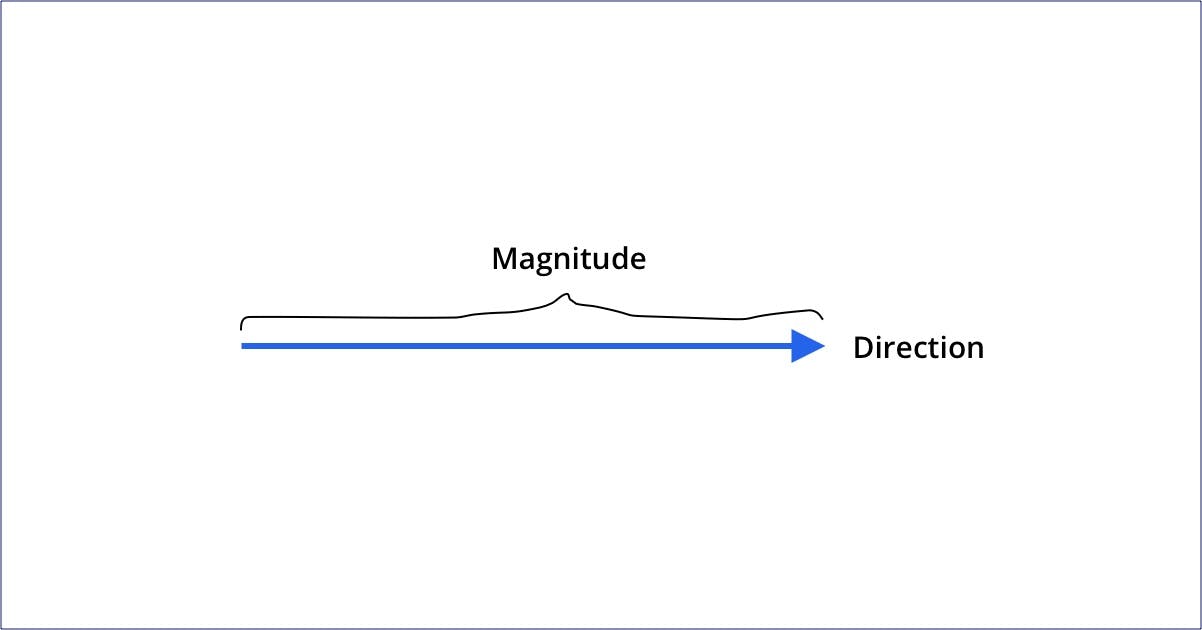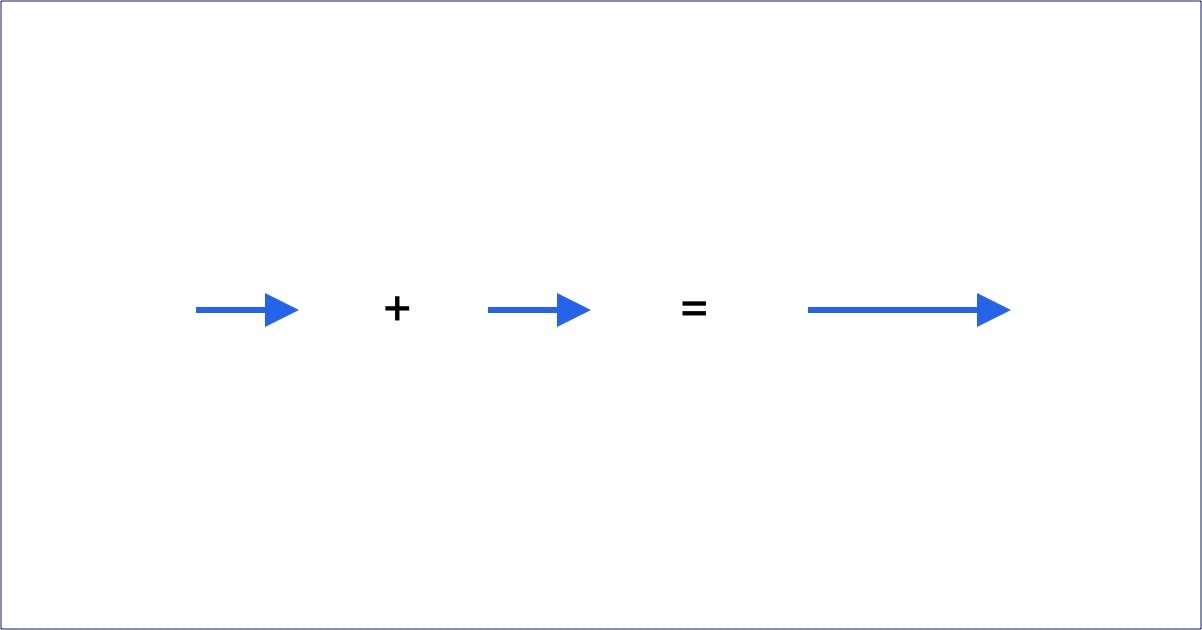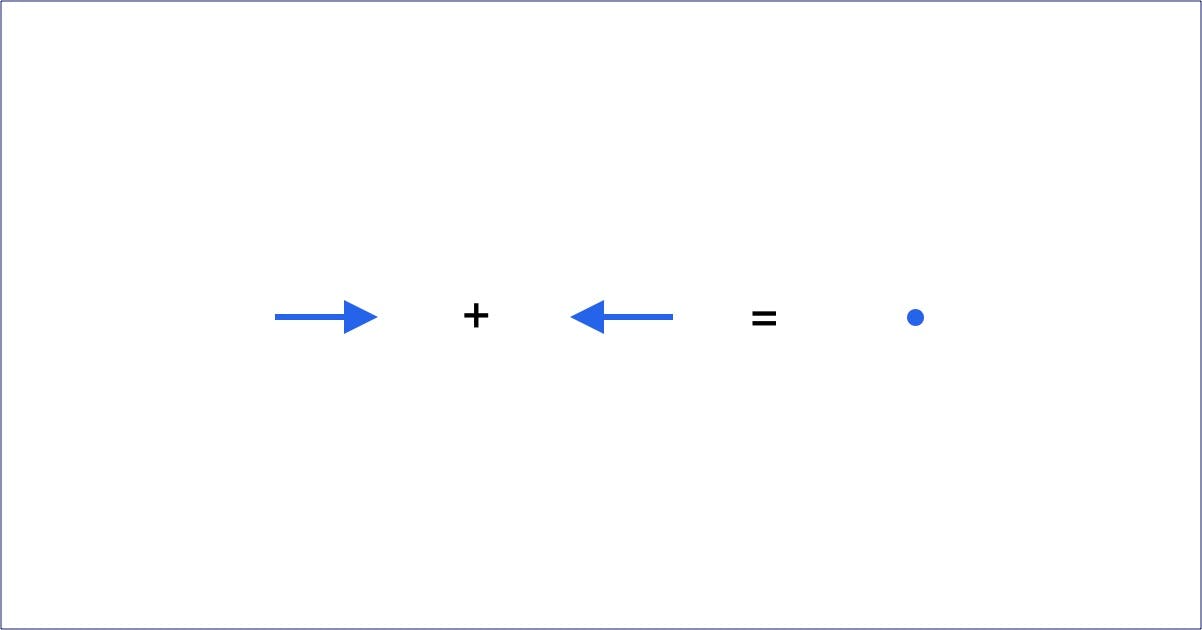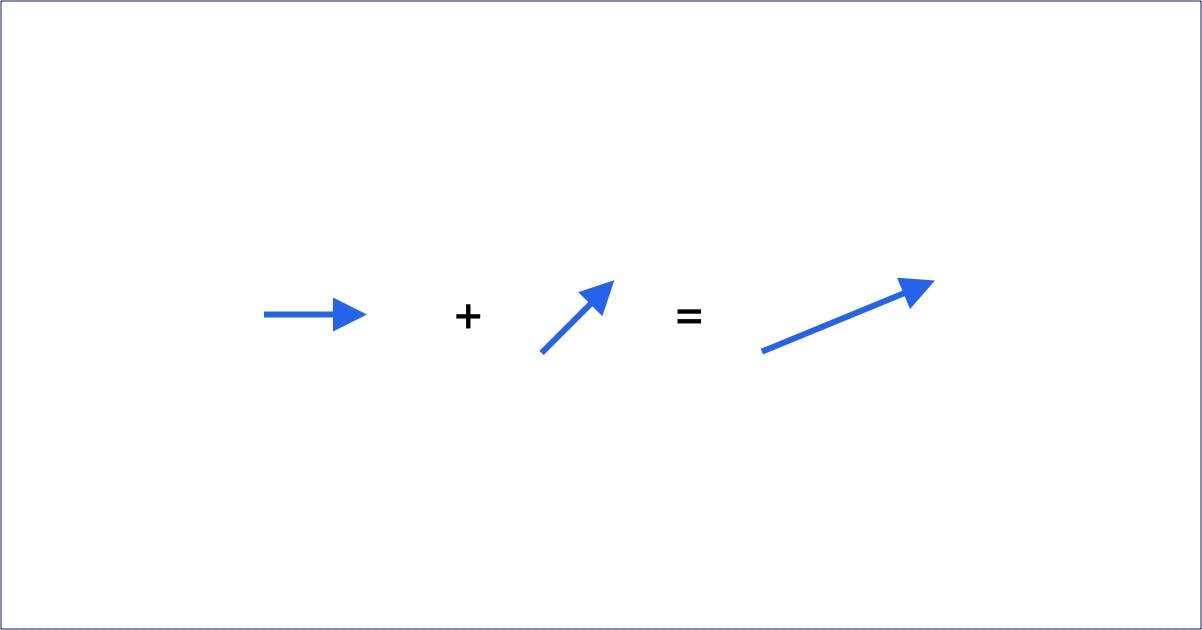career
Projects as Vectors
Written on 13 June 2021
A fresh graduate recently asked me how I build my personal brand while juggling my full-time job and side projects.
I gave an indirect answer by explaining how I choose projects to work on. I said I choose things to do using the concept of vectors. In short, projects can be thought of as vectors and I want them to be pointing in the same direction—the direction of my goals.
Projects as vectors
A vector is an object with direction and magnitude. It is often represented by an arrow. The direction of the arrow indicates the direction while the length of the arrow indicates the magnitude.

For example, velocity is a vector. It has both a direction and a speed. Every project is a vector. It points to where it’ll bring you to (i.e. direction) and how far in that direction (i.e. magnitude).
What about having multiple projects?
Vectors can be added together. The result is also a vector.
If two vectors are pointing in the same direction and have the same magnitude, adding them together gives you a vector pointing in that direction with the sum of the magnitude of each original vector.

If two vectors have the same magnitude but are pointing in the opposite direction, they cancel each other out. Mathematically, you get a zero vector—or essentially nothing.

Projects are similar. Two projects can bring you towards your goal faster or they can cancel themselves out. Of course, it is rarely so clear-cut. Project vectors are not just pointing in the same direction or the opposite directions. They are at different angles because each project usually leads to multiple outcomes. For example, starting an online store gives me entrepreneurial experience, teaches me about e-commerce, and (maybe) makes me some money.
But as long as the sum of the two vectors is still pointing in the general direction I want to be heading, I think it is fine.

Picking projects by direction
Using this concept, I pick project vectors that are generally pointing in the direction where I want to be going.
In life, I want to go towards a general direction (i.e. my life goals) but the exact direction I am heading at every point changes from time to time, depending on my focus at that time in my life.
Here are a few examples:
- When I was a Content Crafter at Buffer, I was sending a weekly content marketing newsletter. In the process of curating articles for the newsletter, I was reading many content marketing articles and connecting different ideas to try on the Buffer blog.
- When I was doing product marketing at Buffer, I started Yeti Distro, a publication where I share my weekly work and analyze the product and marketing strategies of other tech companies. My work was giving me topics to write about while writing about my work helped me reflect.
- At Buffer, my teammate and I were wondering how we can use our product like our ideal customers. I eventually started Open Atlas, an online notebook store, to see if I can build a brand on social media using Buffer. It is still relevant now that I'm at ReferralCandy because I am marketing to e-commerce merchants and Open Atlas makes me an e-commerce merchant.
- Since joining ReferralCandy, I have been publishing more regularly on my blog to document the new things I’m doing and reinforcing the new concepts I’m learning. At the same time, I can help others in a similar position as I am, it is building my personal brand, my essays can also be published on our company blog, and more people will know about ReferralCandy. Multiple wins!
Then I avoid vectors that are mostly pointing in the opposite direction. If it doesn’t benefit my focus, it likely is a distraction.
Here are some examples:
- I would not start an affiliate site now to make money because it is not as relevant to my main focus (e-commerce and SaaS).
- Yeti Distro does not make as much sense now as I’m less specialized in product marketing in my current role.
- I stopped coding my web app for now because I want to focus on my new job.
What do you think of this concept? Let me know!
P.S. I did not come up with this concept. I might have learned it from Elon Musk. Charlie Munger also talks about the Lollapalooza effect, which describes the negative effect when a few biases compound on one another at the same time in the same direction.